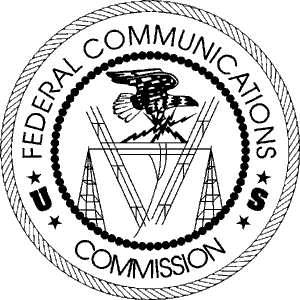 In a victory for broadband carriers like AT&T and Verizon, the D.C. Circuit strikes down anti-discrimination and anti-blocking rules.
In a victory for broadband carriers like AT&T and Verizon, the D.C. Circuit strikes down anti-discrimination and anti-blocking rules.
The U.S. Court of Appeals for the District of Columbia has knocked down major provisions of the FCC’s “net neutrality” rule-making.
In a 2-1 vote on Tuesday, the federal appellate court offered some sympathy for why the government agency would want to require broadband providers like AT&T and Verizon to treat Internet traffic equally, but nonetheless decided that the FCC had exceeded the scope of its authority.
According to a 81-page ruling, “Given that the Commission has chosen to classify broadband providers in a manner that exempts them from treatment as common carriers, the Communications Act expressly prohibits the Commission from nonetheless regulating them as such. Because the Commission has failed to establish that the anti-discrimination and anti-blocking rules do not impose per se common carrier obligations, we vacate those portions of the Open Internet Order.”
In a long opinion, Judge David Tatel goes through the legislative history of telecoms and an explanation of how the Internet works — videos of cats on YouTube are mentioned — as well as offers some background why many are in favor of rules to prohibit broadband providers from blocking lawful content or discriminating in the transmitting of lawful network traffic.
For example, Comcast might wish to limit its subscribers ability to access the New York Times website so that a Comcast-owned news competitor could increase its traffic. Or another broadband provider like Verizon might wish to choke Netflix traffic given the heavy bandwidth consumption of its users.
In Tuesday’s ruling, the federal appellate court keeps the FCC’s disclosure rules in place, but sees the anti-discrimination and anti-blocking measures as subjecting companies like AT&T and Verizon to treatment as common carriers. The companies raised objections including the First Amendment and an uncompensated taking to such treatment.
Now that Judge Tatel has agreed, some observers also believe it could open the path towards deals between broadband carriers and content distributors.
In a statement, FCC chairman Tom Wheeler put the best spin on the ruling he could, applauding the D.C. Circuit for at least finding that legislation granted his agency with authority to enact measures governing broadband providers’ treatment of Internet traffic. As for the specific rules struck down, Wheeler said the agency left open the possibility of an appeal to the Supreme Court.
“I am committed to maintaining our networks as engines for economic growth, test beds for innovative services and products, and channels for all forms of speech protected by the First Amendment,” he said. ” We will consider all available options, including those for appeal, to ensure that these networks on which the Internet depends continue to provide a free and open platform for innovation and expression, and operate in the interest of all Americans.”

